1 made a decision to attend
2 reading book rather than
3 have an opportunity
4 have taken advantage of
5 is always getting
6 without saying any words to me
7 it tiring to solve
8 were grown up
1 made a decision to attend
2 reading book rather than
3 have an opportunity
4 have taken advantage of
5 is always getting
6 without saying any words to me
7 it tiring to solve
8 were grown up
Giải thích và chọn đáp án vs
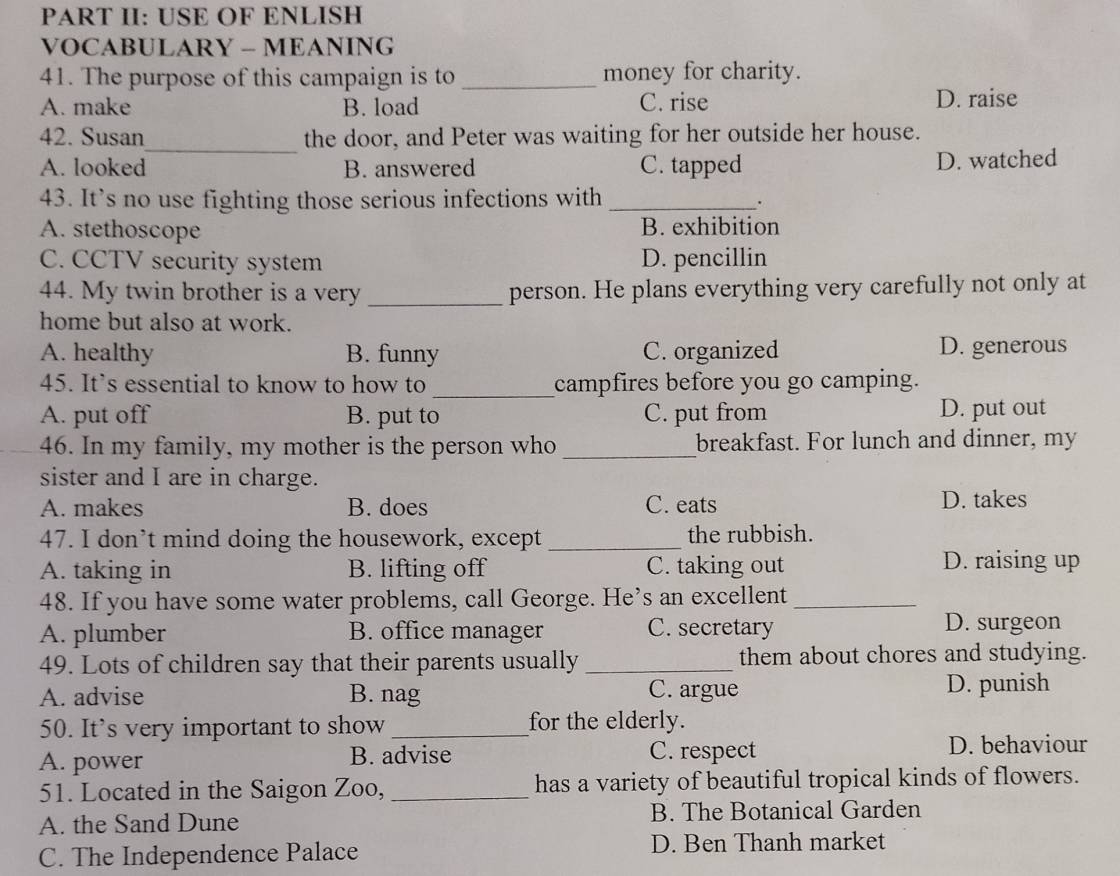
Viết một đoạn văn ngắn bằng tiếng anh nói về công việc mà em yêu thích.
Viết một đoạn văn ngắn từ 5-7 câu bằng Tiếng Anh nói về một người nghệ sĩ mà bạn hâm mộ.
Ai làm dùm topic 2 người nó được không ạ
chủ đề
Sources of energy
Travelling in the future
CHUỖI SERIES CÂU HỎI ĐỀ LUYỆN THI ĐGNL ĐHQG TPHCM
[MÔN TIẾNG ANH NGÀY 4]
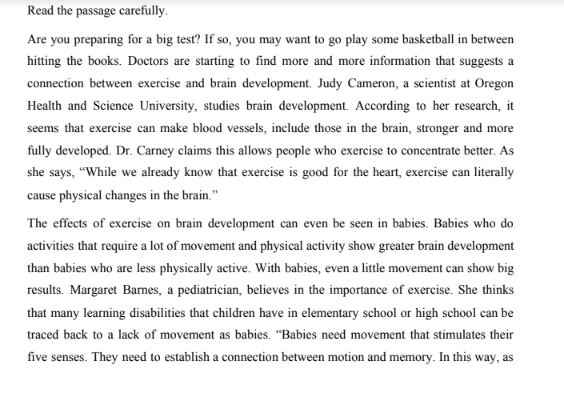
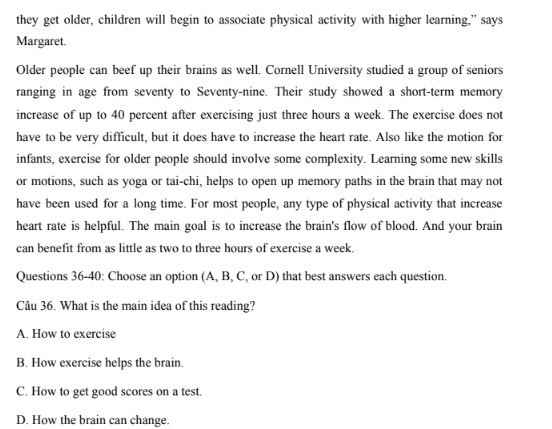
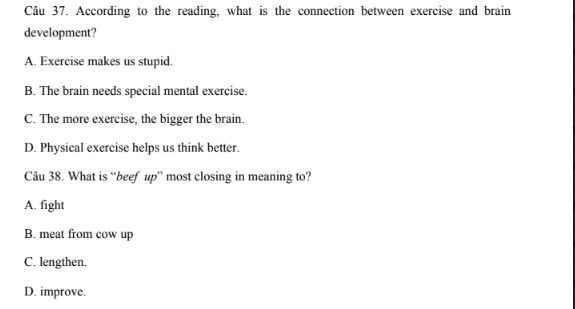
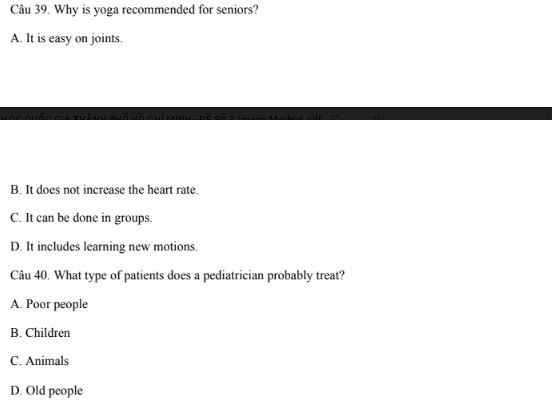
A. Choose A, B, C or D to fill in each of the corresponding gaps. Babies sleep for up to eighteen hours a (26)................................... Mrs. Thatcher and Napoleon both said they only (27).................................. to do it three or four hours a night. Sleep. No one can live without it. But how much do we really need? Research by the National Sleep Foundation (28).................................. Washington says that we all need eight hours’ sleep every night. Scientists have found that people (29).................................... sleep for less than six and a half hours a night are more often ill (30).................................. people who sleep for eight hours. Going without sleep also increases the chance of serious illness. ‘Workaholics’ who sleep (31).................................. less than five hours often die young, and do worse at work. The scientists found that on average adults (32).............................. for seven hours a night, with thirty-two percent sleeping less than six hours. It also (33).......................... that the idea that we need less sleep as we get older is completely untrue. ‘People have (34)............................. idea how important is to their lives’ Dr. Thomas Roth, director of the Foundation says. ‘Good (35)............................. needs good sleep’. 26. A. day B. week C. month D. year 27. A. need B. needs C. needed D. needing 28. A. at B. in C. on D. under 29. A. what B. which C. who D. where 30. A. than B. as C. of D. for 31. A. of B. for C. with D. at 32. A. to sleep B. slept C. sleeping D. sleep 33. A. to say B. say C. says D. saying 34. A. not B. no C. none D. nor 35. A. health B. healthy C. healthful D. healthily
B. Find and correct the mistakes in the following sentences 23. She has started learning to drive two weeks ago. 24. Unless she will study hard, she will fail the exam. 25. She felt tired but she went to bed earlier than usual.
A. Choose A, B, C or D to fill in each of the corresponding gaps. Babies sleep for up to eighteen hours a (26)................................... Mrs. Thatcher and Napoleon both said they only (27).................................. to do it three or four hours a night. Sleep. No one can live without it. But how much do we really need? Research by the National Sleep Foundation (28).................................. Washington says that we all need eight hours’ sleep every night. Scientists have found that people (29).................................... sleep for less than six and a half hours a night are more often ill (30).................................. people who sleep for eight hours. Going without sleep also increases the chance of serious illness. ‘Workaholics’ who sleep (31).................................. less than five hours often die young, and do worse at work. The scientists found that on average adults (32).............................. for seven hours a night, with thirty-two percent sleeping less than six hours. It also (33).......................... that the idea that we need less sleep as we get older is completely untrue. ‘People have (34)............................. idea how important is to their lives’ Dr. Thomas Roth, director of the Foundation says. ‘Good (35)............................. needs good sleep’.